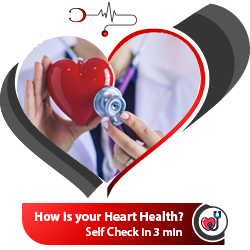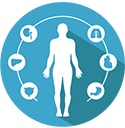Public Health in India: Issues & Challenges
Public health in India exhibits a peculiar trend. There is a serious gap in health infrastructure on the one hand and a double burden of communicable and non-communicable diseases on the other. In spite of a compound annual growth rate of 15% in the healthcare industry, public health in India is full of paradoxes and challenges that seem to be insurmountable on the face of it. Statistics suggest that India has only 1.5 hospital beds per 1000 population. Ironically, health tourism is also on the rise with people from U.S and U.K coming to India because of the relatively low cost of treatment.

Again, when we look at certain indicators, health in India seems to be in a state of progress. Life expectancy at birth, for example, has increased from 48.8 years in 1970 to 64.8 years in 2009. However, there is an increasing incidence of deaths from chronic non-communicable diseases , or lifestyle diseases as they are popularly known, among people aged 35 to 60. Simultaneously, a report by PricewaterhouseCoopers suggests that 18.9 crore Indians will be at least 60 years of age by 2025, the implication being an enormous burden on the healthcare infrastructure of India as a result of the growing elderly population.
While the above facts present paradoxes that seem to be deeply entrenched as far as public health in India is concerned, there are serious challenges as well that needs to be focused on. As mentioned before, the healthcare industry in India is presently driven by a double burden of infectious and chronic diseases. Even though certain diseases like polio, leprosy and neonatal tetanus are on the verge of elimination, certain communicable diseases that were supposed to be under control have re-emerged as life threatening health issues because of resistance to drugs. In addition to that there has been a serious rise in lifestyle ailments like heart diseases, cancers or diabetes. This has happened largely because of an increase of people in the middle income group with a larger amount disposable income and an adoption of unhealthy western lifestyle involving diet high in fat and sugar content.
Lifestyle diseases claimed more than 52 lakh lives in the year 2008. Heart related diseases have the highest share in that. Diabetes on the other hand has become the most alarming health issue with regard to public health in India. While there were only 2.1% diabetics in urban India in the 1970s, the number has grown to 12.1% for adults above the age of 20. Latest study by International Diabetes Federation suggests that there were 36.6 crore diabetics all over the world in 2011, out of which 6.1 crore were from India, justifying the nation to be the diabetes capital of the world.
Given the issues and challenges public health in India, there will always be a gap in terms of healthcare resources (doctors, paramedical staff, hospital beds, technology, medicines, etc.) and the number of people who require health care in any form. Hence, preventive health care would be an alternative and effective strategy rather than consolidating resources on curative services. The case for preventive healthcare is made even stronger by the fact that almost 80% of all lifestyle diseases can be prevented by modifying health habits and detecting the possibility or the onset of a disease at a very early stage through preventive health screening. Moreover preventive healthcare also helps prevent premature death or debilitating disability through early detection of such chronic diseases.
References:
- Healthcare in India, Emerging Market Report 2007 - PricewaterhouseCoopers
- Kaplan NM. Systemic hypertension: Treatment. In: Bonow RO, Mann DL, Zipes DP, Libby P, eds. Braunwald's Heart Disease: A Textbook of Cardiovascular Medicine. 9th ed. Philadelphia, Pa: Saunders Elsevier; 2011:chap 46.
- Medical Industry Diagnosis: Triage for Health Care and New Vision for Life Sciences
- IDF Diabetes Atlas - International Diabetes Federation





